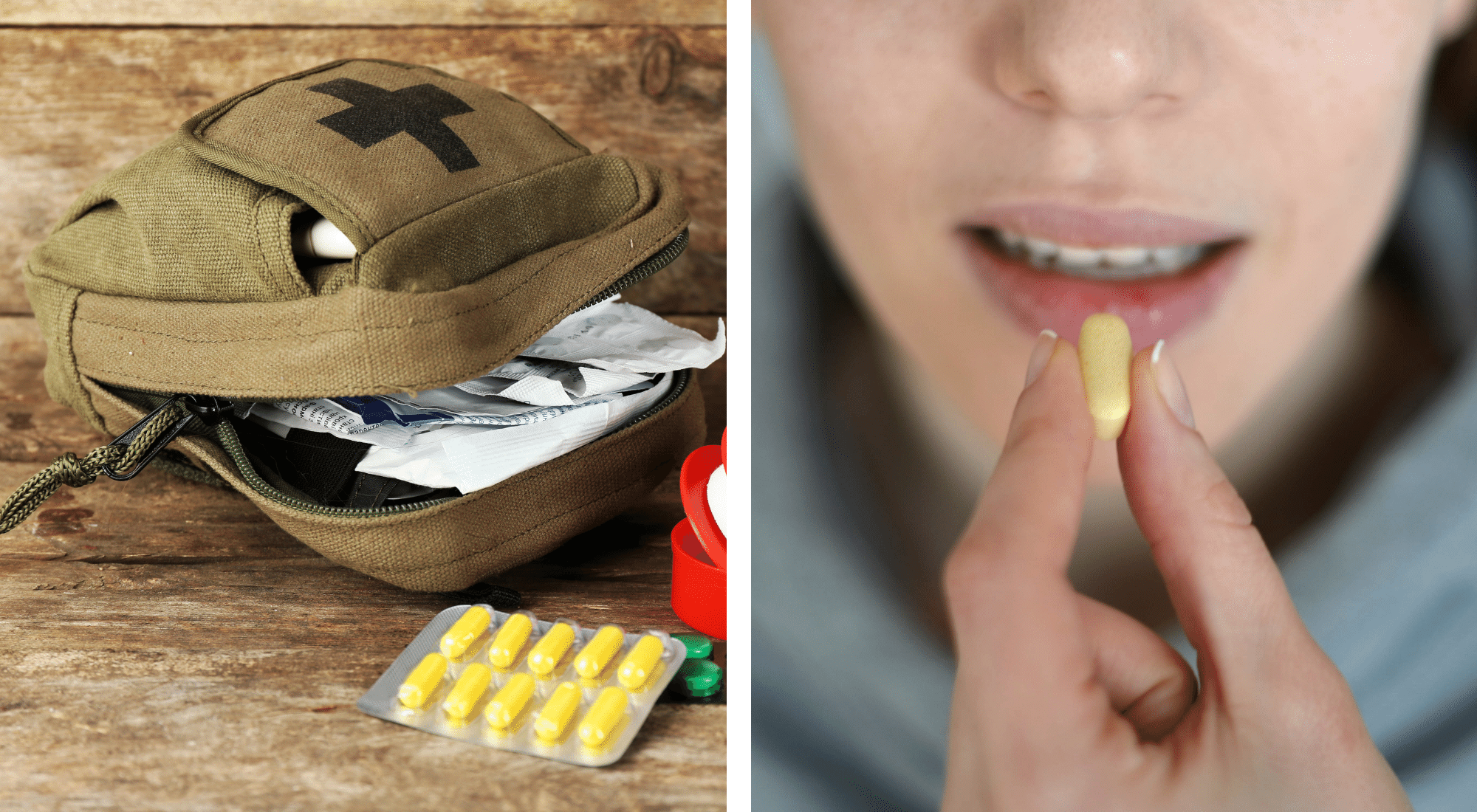✈️ Can I Travel With Medication in a Checked Bag 💊
Learn how to manage traveling with medication, from TSA guidelines to packing tips for checked baggage. Get insights to travel safely and stress-free!
Traveling with medication can feel overwhelming if you're unsure about rules, proper packing methods, or special precautions. Whether you require prescription medication, medical devices, or over-the-counter meds, preparing ahead of time can help you avoid unnecessary stress during security screening and make your flight smoother.
This guide will cover the essentials of traveling with medications, including TSA guidelines, packing tips, and advice for managing prescription bottles, pill cases, controlled substances, and medical supplies. By the end, you’ll feel more prepared, informed, and confident about packing your medication travel bag!
Can I Travel With Medication in a Checked Bag?
Yes, you can pack medications in checked baggage. However, it's not always advisable to store them there. Checked luggage can be subject to loss, delays, or extreme temperature fluctuations, which may damage certain medications, particularly those in liquid form or those requiring refrigeration, like insulin. It’s also important to keep essential medication within reach during your flight, in case you need access mid-journey.
Pro Tip: Always pack your necessary medications and medical devices in your carry-on bag for easy access and to minimize risk.
Understanding TSA Rules for Traveling With Medications
The TSA (Transportation Security Administration) has specific rules for medications to ensure passenger safety while accommodating medical needs. Here’s what you need to know:
Medications and Security Screening
When passing through security, your medications will need to go through the X-ray machine. If you’re concerned about X-ray exposure, you can request a visual inspection. Be sure to inform the TSA officer about your request before screening begins.
All prescription bottles, pill cases, and medical supplies in your carry-on must be screened. If you have medical devices attached to your body, alert the officers for further instructions. Some devices may require examination by walking through a metal detector or undergoing other forms of screening.
Packing Medication in Liquid Form
Medications in liquid form, such as syrups or injectable treatments, are permitted in both carry-on and checked baggage. Even if they exceed the standard 3.4-ounce liquid limit for other items, they are considered exceptions. Just ensure they’re clearly labeled and inform security officers about them during screening.
If your medication needs to stay cool, pack it with ice packs or gel packs. Make sure these cooling elements are solid or frozen when you pass the security checkpoint to avoid delays.
Controlled Substances
Certain medications, such as those considered controlled substances, require additional precautions. Always check your prescriptions are labeled correctly and carry a doctor’s note if necessary. For international travel, it’s crucial to research the regulations of the countries you’re entering, as some medications aren’t allowed or are considered dangerous in other countries.
Medical Supplies and Devices
Travelers with medical conditions requiring devices like insulin pumps, CPAP machines, or nebulizers should pack these items securely in carry-on bags. While these devices are typically subject to screening, TSA officers are trained to handle them with care to avoid damage.
Benefits of Packing a Thoughtfully Designed Medication Travel Bag
Having a well-organized medication travel bag can make a world of difference. It keeps your prescriptions, over-the-counter meds, and medical devices secure, accessible, and easy to retrieve during your trip. Here are the main benefits:
Accessibility During the Flight
Packing medication in your carry-on ensures you can access it whenever necessary. Whether it’s time to take a pill or address symptoms of a medical condition, you won’t have to wait until your luggage is unloaded. This is especially helpful for travelers managing chronic issues like diabetes or severe allergies.
Minimized Risk of Loss or Damage
Your checked luggage may be misplaced or delayed. By keeping your vital medications with you, you reduce the chance of being left without the supplies you need. Even durable equipment like CPAP machines or prescription bottles are more secure when carried on instead of packed in checked luggage.
Easier Navigation Through Security Screening
Group your medications and supplies neatly in a pill case or dedicated compartment of your travel bag. This makes security screening faster and smoother, as TSA officers will easily identify your items when they go through the conveyor belt.
How to Prepare for Traveling With Medication
Research Regulations in Advance
If you're traveling internationally, check the rules of certain countries regarding medications. Some countries classify common prescriptions as controlled substances or prohibit their entry entirely. It’s also advisable to carry a copy of your prescriptions in case local authorities request proof.
Bring Extra Medication
Flights can be delayed, and plans may change unexpectedly. To prepare for these situations, pack more medication than you think you'll need. Excess supplies ensure you remain covered in case of delays or emergencies.
Carry a Doctor’s Note
A doctor’s note can clarify your medical needs to security officers, customs agents, or health professionals abroad. This is especially useful for medications requiring refrigeration, liquid medicines over the standard travel limit, or equipment like insulin syringes.
Organize Key Items in Your Bag
Here’s what to include in your carry-on medication travel bag:
- Prescription bottles with labels
- Pills in a compact pill case
- Liquid medications in leak-proof containers
- Cooling agents like ice packs if needed
- Any necessary equipment, such as an inhaler or blood glucose monitor
- A copy of your prescriptions and your doctor’s note
Inform TSA Officers
If you're traveling with specialized medical devices or unique needs, inform the TSA immediately. Officers are trained to provide travelers with assistance during the screening process. For example, they may accommodate passengers who are unable to remove medical devices. Always communicate your concerns clearly.
Final Thoughts on Traveling Safely With Medication
Traveling with medication doesn’t have to be stressful. The key is preparation. Pack thoughtfully, stay informed about rules for both TSA and your destination, and always prioritize accessibility in case you need your meds during the flight. By keeping your medication travel bag organized and secure, you can enjoy your trip with peace of mind.
If you have any lingering concerns or questions about the process, reach out to your airline or check TSA guidelines for more information.
Happy Travels! 🌍



